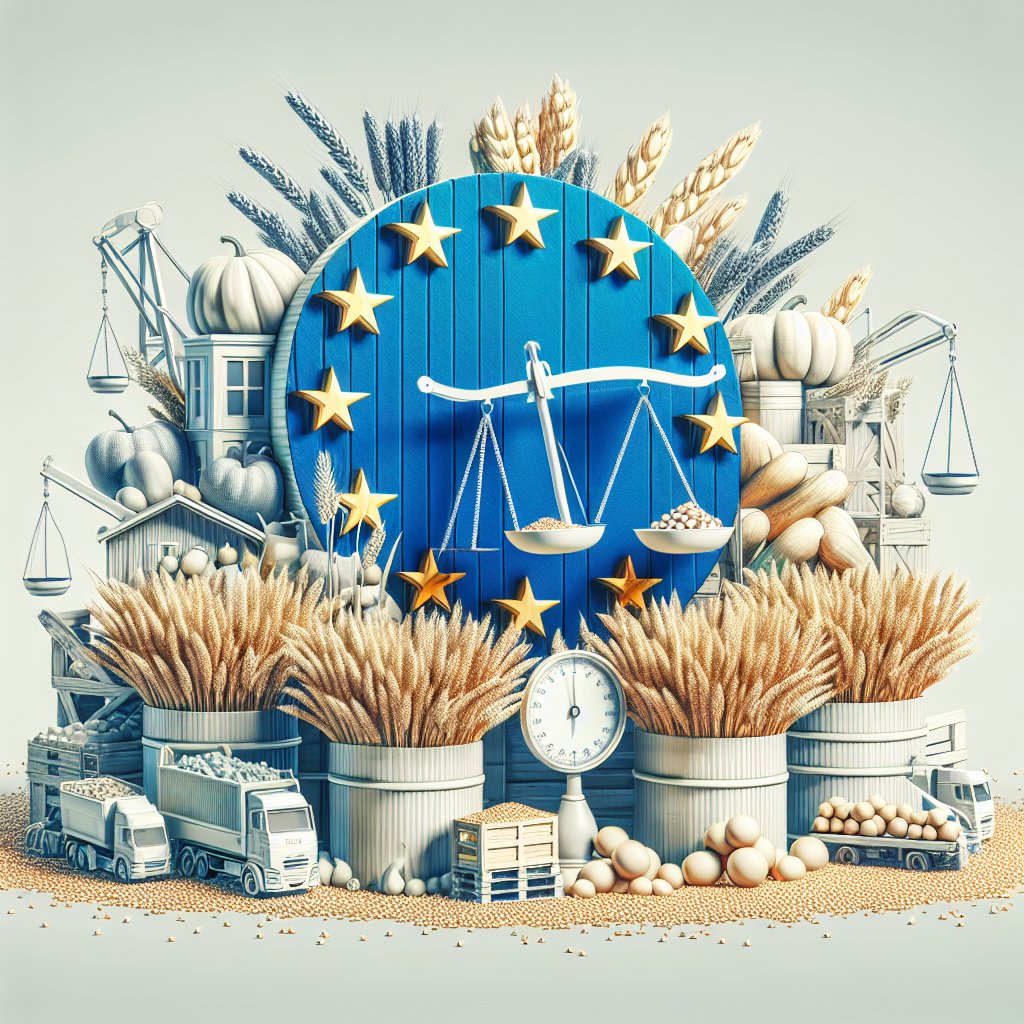The impact of the European Union’s trade policy on agricultural product prices in Poland is a multifaceted issue that has significant implications for farmers, consumers, and the overall economy. As a member of the EU, Poland is subject to various trade agreements and regulations that shape the agricultural market. This article will explore the intricacies of these policies, their effects on pricing, and the broader consequences for the Polish agricultural sector.
Understanding EU Trade Policy
The European Union’s trade policy is designed to promote free trade among member states while also protecting the interests of its agricultural sector. This policy framework includes a variety of measures such as tariffs, quotas, and subsidies that influence the prices of agricultural products. The Common Agricultural Policy (CAP) is a cornerstone of EU agricultural policy, providing financial support to farmers and ensuring a stable food supply across the region.
One of the primary objectives of the CAP is to stabilize agricultural markets and ensure fair prices for farmers. This is achieved through direct payments to farmers, which are often linked to the amount of land they cultivate or the type of crops they produce. Additionally, the CAP includes measures to support rural development and promote sustainable farming practices.
Trade agreements negotiated by the EU with non-member countries also play a crucial role in shaping agricultural prices. These agreements can lead to increased competition from imported products, which may drive down prices for certain commodities. Conversely, they can also create opportunities for Polish farmers to export their products to new markets, potentially increasing prices for high-quality goods.
The Impact on Agricultural Prices in Poland
The influence of EU trade policy on agricultural prices in Poland is evident in several key areas. First, the removal of trade barriers within the EU has facilitated the movement of agricultural products across borders, leading to greater competition among producers. This competition can result in lower prices for consumers but may also put pressure on Polish farmers to reduce their prices to remain competitive.
Moreover, the CAP’s direct payments have a significant impact on the income of Polish farmers. These payments help to cushion the effects of price fluctuations in the market, providing a safety net that allows farmers to invest in their operations and maintain production levels. However, the reliance on subsidies can also create challenges, as farmers may become dependent on these payments rather than focusing on improving efficiency and productivity.
Price Volatility and Market Dynamics
Price volatility is a common feature of agricultural markets, influenced by factors such as weather conditions, global demand, and changes in trade policy. In Poland, the prices of key agricultural products like wheat, corn, and dairy can fluctuate significantly due to these external factors. The EU’s trade policy can exacerbate this volatility by altering the competitive landscape and affecting supply and demand dynamics.
For instance, when the EU negotiates trade agreements that lower tariffs on imported agricultural products, Polish farmers may face increased competition from cheaper imports. This can lead to a decline in prices for domestic products, making it difficult for farmers to cover their production costs. On the other hand, if Polish farmers can access new markets through trade agreements, they may be able to command higher prices for their goods, particularly if they focus on quality and niche products.
Consumer Prices and Food Security
The impact of EU trade policy on agricultural prices also extends to consumers. Lower prices for agricultural products can benefit consumers by making food more affordable. However, this can come at a cost to farmers, who may struggle to maintain their livelihoods in a highly competitive market. The balance between fair prices for consumers and sustainable incomes for farmers is a delicate one that policymakers must navigate.
Food security is another critical aspect of this discussion. The EU’s trade policy aims to ensure a stable food supply for its member states, but reliance on imports can create vulnerabilities. If global supply chains are disrupted, Polish consumers may face higher prices and reduced availability of certain products. Therefore, it is essential for the EU to strike a balance between promoting free trade and ensuring that domestic agricultural production remains viable.
Future Considerations and Policy Recommendations
As the agricultural landscape continues to evolve, it is crucial for policymakers to consider the long-term implications of EU trade policy on agricultural prices in Poland. Several key areas warrant attention:
- Support for Sustainable Practices: Encouraging sustainable farming practices can help Polish farmers remain competitive while also addressing environmental concerns. This includes promoting organic farming, agroecology, and precision agriculture.
- Investment in Research and Development: Investing in agricultural research can lead to innovations that improve productivity and resilience. This is particularly important in the face of climate change and shifting market demands.
- Strengthening Local Markets: Supporting local food systems can enhance food security and provide farmers with alternative markets for their products. Initiatives that promote farm-to-table connections can benefit both producers and consumers.
- Monitoring Trade Agreements: Ongoing assessment of trade agreements is essential to ensure that they do not disproportionately harm Polish farmers. Policymakers should be proactive in addressing any negative impacts that arise from increased competition.
Conclusion
The influence of EU trade policy on agricultural product prices in Poland is a complex issue that requires careful consideration of various factors. While the benefits of free trade and competition can lead to lower prices for consumers, they can also pose challenges for farmers striving to maintain their livelihoods. By focusing on sustainable practices, investing in research, and supporting local markets, Poland can navigate the intricacies of EU trade policy while ensuring a vibrant agricultural sector for the future.




